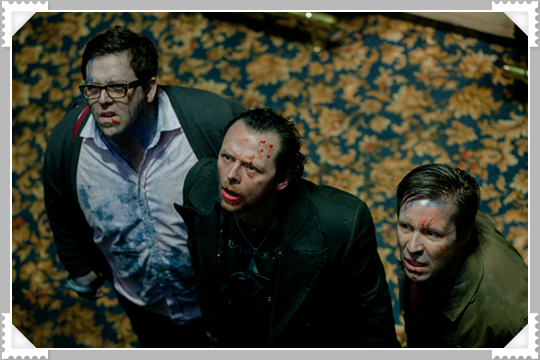
Dear Matt Whiteley, Screenwriter,
With no previous screenwriting credits, you must have thought the biopic would be a pretty easy way to get through your first feature-length script. You don’t even have to make anything up! A trip to your local bookstore, a couple hours on Wikipedia and the first draft practically writes itself. Just highlight your favorite bits and fill in the rest with that “conflict” stuff writers are always talking about. A fabled rise-to-riches, an obligatory fall-from-grace, a redemptive return to glory and you’ve got a formula that would have Blake Snyder patting your back from the great beyond. Unfortunately, based on the way Jobs turned out, it may not have been the paint-by-numbers exercise you imagined. But you sure did try.
It should have been a fool-proof recipe. You have a lead character with all the necessary traits of a great cinematic protagonist. A charismatic (but misunderstood) hippy-genius assembles a group outcast stereotypes to build a futuristic supermachine in his mom’s garage. With acid-driven arrogance, he convinces a rich has-been to back him financially and then actually makes good thanks to the sweat others and a little OCD. Seemingly overnight, the personal computer is on everyone’s 80’s Christmas list. He gets rich, throws a temper tantrum, and stabs his friends in the back only to be fired by a team of scheming corporate cutouts. Fast forward a few years, (the boring garden-tending ones) he’s found inner peace, shaved his beard and limps around in a halo of holy light that seems to provide him with a never-ending supply of inspirational analysis. The evil stooges have since learned the error in their ways and beg our hero to return. Only he can save the company. How satisfying it is when he colors the new computer machine with a blue felt pen and then goes on to create the world’s best discman.
This is, of course, a quick and irreverent recount of your quick and irrelevant retelling of the life of Steve Jobs, founder of the world’s most profitable public company and creator of the device you’re likely reading this on.
Your version begins in his scruffy college days, takes us quickly through the rise of Apple and into his untimely departure. It all moves at a breakneck pace that just seems to be checking boxes rather than examining themes. We never truly spend enough time with Jobs to understand his method or his madness. You touch briefly on his enigmatic personality and questionable ethics just long enough to numb our interest in his success or rally behind his legendary return. By the time we reach the film’s conclusion, he’s manifested a zen-like persona without the audience having any sense of how he got there. What’s left is the Disney-fied rendering of a famous misanthrope – and it’s forgivable because he’s an undeniable genius who built some pretty neat things.
Biographic interpretation can only ever be revered or reviled. There’s no in-between. The lone fact that you’re even writing a film about someone’s life means they’ve gone out and put dent in the universe so large that your pen was gravitationally pulled to the paper. Regurgitating someone’s entire existence in a series of bullet points comes with the kind of baggage fanboys refuse to check at the gate. It’s the kind of offering that will be ceaselessly and unapologetically scrutinized. Forever. Once the dust settles, if your paper is ever drawn to pen again, maybe try something a little less irresponsible. Like fiction.
It’s not all bad. The music supervision deserves a note of praise for putting together a collection of relevant period classics. And Josh Gad’s Steve Wozniak, is a lovable comic foil, engaging enough in at least one scene to generate a bit of genuine empathy. And, for what it’s worth, the film’s fault’s aren’t completely yours. You only drafted the blueprint. Someone else steered the ship into the iceberg. The emotional telegraphing (single tears shed, or late night car ride featuring screams in frustration) just can’t be forgiven. And let’s not forget the overabundance of inspirational music cues or the awful opening montage in the acid field. (He’s, like, tripping on his own mind music, man.)
You should take solace knowing that when all is said and done, you will have successfully dodged the harshest of all bullets in the shooting gallery of criticism. That shot will land square in the heart Chris “Ashton” Kutcher playing Michael Kelso’s pantomime of the late Steve Jobs. Remember when he glued on that beard, studied a keynote and then gestured his way through a sketch performance for two hours? This casting choice was abysmal before it was announced and goes to show that similarities in appearance are never a justifiable replacement for good acting.
It remains to be seen whether audiences are actually interested in a biopic about a paradigm-shifting tech geek. Rumors put Aaron Sorkin’s version in theaters some time next year. You were first to market, and as Steve said, there is an advantage to being first. But, like so many of our hero’s failed wares, you still run the very real risk that no one wants your product.
Here’s hoping Sorkin’s take will be the iPad to your Newton.
Fade to black,
Scott Belyea
Status: Return to Sender (2/5)









